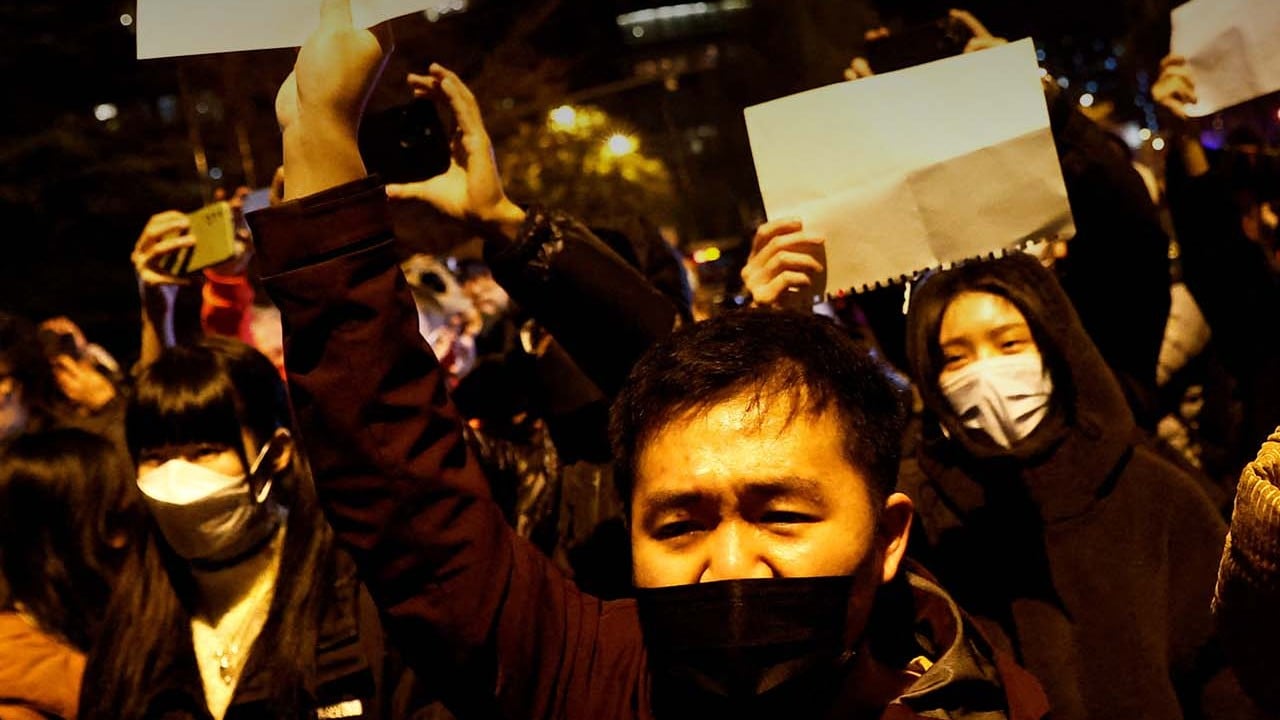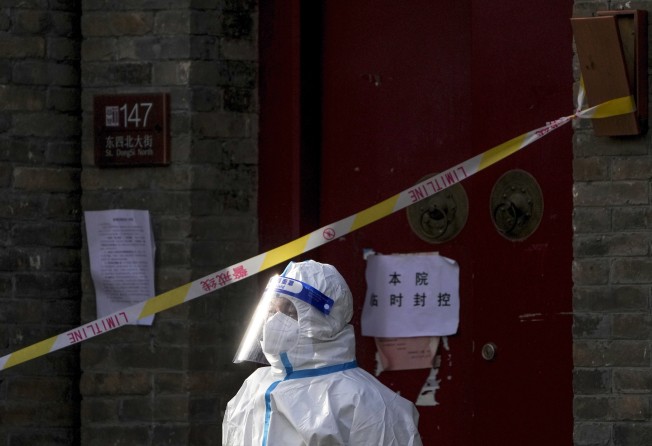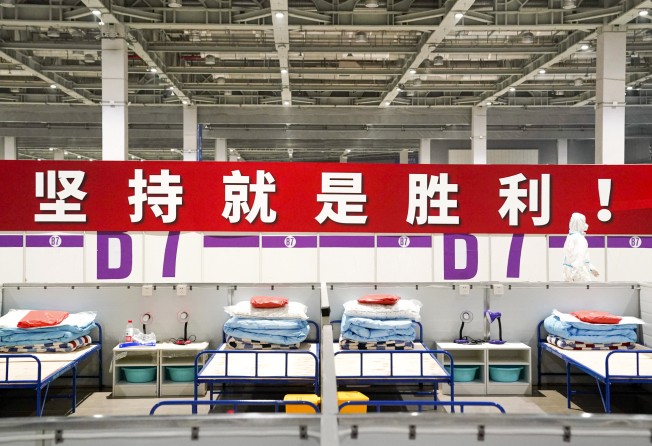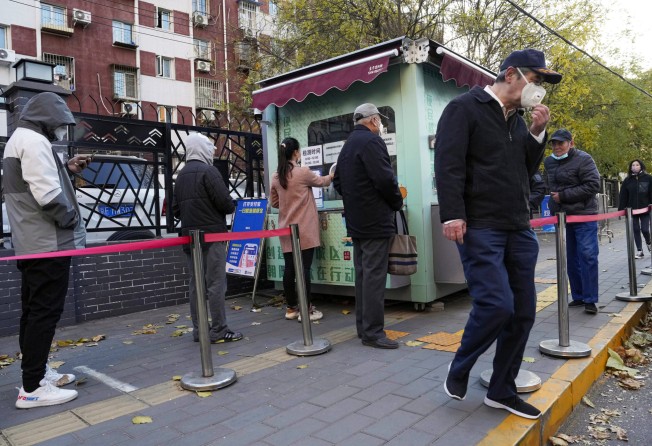
03:59
Protests flare across China over zero-Covid, lockdowns after deadly Urumqi fire

China’s stringent Covid controls have triggered growing public anger, as highlighted by the protests seen in major cities and universities over the weekend.
With cases surging, driven by highly infectious strains of Omicron, and lockdowns and other stringent controls taking an increasing toll on people’s livelihoods and well-being, here are some of the elements of the zero-Covid policy that are the main focus of discontent – and some of the measures taken to address these complaints.
The latest protests were prompted by a fire in Urumqi, the capital of Xinjiang region, that killed 10 people at a residential compound amid the city’s prolonged lockdown.
Although the local authorities denied that Covid restrictions were to blame for the deaths, video clips showing fire engines being stuck in narrow lanes next to barricades fuelled public anger.
Photos and videos shared on social media have previously shown residents in different parts of the country, including Hebei, Shanghai and Guangdong, being locked inside their homes or residential compounds by wires, iron bolts or steel barriers despite the obvious risk in the event of a fire.
Since the Urumqi fire, China has prohibited the use of fences to block fire escapes, gates and doors. Media reports said that paper strips are now being used to seal off doors in locked down buildings and communities.
Paper strips have been introduced to seal off doors in lockdown places, according to media reports.
A number of people around the country have reported difficulties in getting access to medical treatment as hospitals halted operations or did not accept patients without a recent negative PCR test.
The delays, as well as disruptions caused to ambulance services, have been blamed for a number of deaths since 2020, while some pregnant women have lost their babies after being denied treatment in time.
The central government has asked residential communities to help ensure people can access treatment and hospitals are not allowed to turn away patients from high-risk areas.
The World Health Organization says the risk of people being infected by pets is low, but incidents such as the beating to death of a corgi whose owner had been quarantined in Shanghai earlier this year generated widespread public fury.
There have also been organised killings in parts of the country, including the Anci district in the northern city of Langfang, which called for a “complete cull of indoor animals” owned by infected patients in March this year. Although the authorities there reversed the policy within a matter of hours, it is not clear how many pets had been killed by then.
In response to the killings, non-governmental organisations and volunteers have set up shelters in cities such as Shanghai, Shenzhen and Guangzhou to look after animals while their owners are in quarantine.
Asymptomatic cases and those with mild symptoms are often isolated in temporary hospitals known as fang cang – often in poor conditions.
Some of these establishments, which have often been built quickly or make use of existing venues such as conference centres, can hold tens of thousands patients at a time.
Complaints include the condition of the shared bathrooms, shortages of daily necessities and unpalatable food. In some places, children have been quarantined alone.

Many cities now allow children to quarantine with their parents. During Beijing’s latest outbreak, some asymptomatic residents have also been allowed to quarantine at home assuming their neighbours agree. It is unclear whether such violations of the zero-Covid playbook are due to a shortage of isolation beds or increased flexibility being tolerated at a lower level.
There have been growing complaints about the ease by which people can be caught out by contract tracing through mobile apps.
Although the rules vary from place to place, anyone deemed a secondary close contact of a positive case can be sent to central quarantine. Such measures could easily snare thousands or even tens of thousands of people and the rules – introduced a year ago – have now been relaxed.
Close contacts will still have to go to quarantine, but the authorities now say secondary close contacts no longer need to be traced.
Residents in cities such as Beijing are also worried about the risk of a pop-up window that removes their green code, thereby banning them from using public transport or entering public spaces.
These apps have also been used to restrict access to the capital from people in high-risk areas – especially during last month’s Communist Party congress.
Many have complained that the criteria are often arbitrary, with pop-up windows appearing for no apparent reason or if people buy medicines that treat similar symptoms to Covid.
Most Chinese cities require regular PCR tests to enter public places such as office buildings, shopping malls and subways with frequent mass testing being ordered in areas hit by an outbreak.

Some people worry that having to queue alongside thousands of other people for testing increases the risk of getting infected.
Although there have been calls for PCR tests to be replaced by rapid antigen tests, only the former are officially recognised for positive tests.